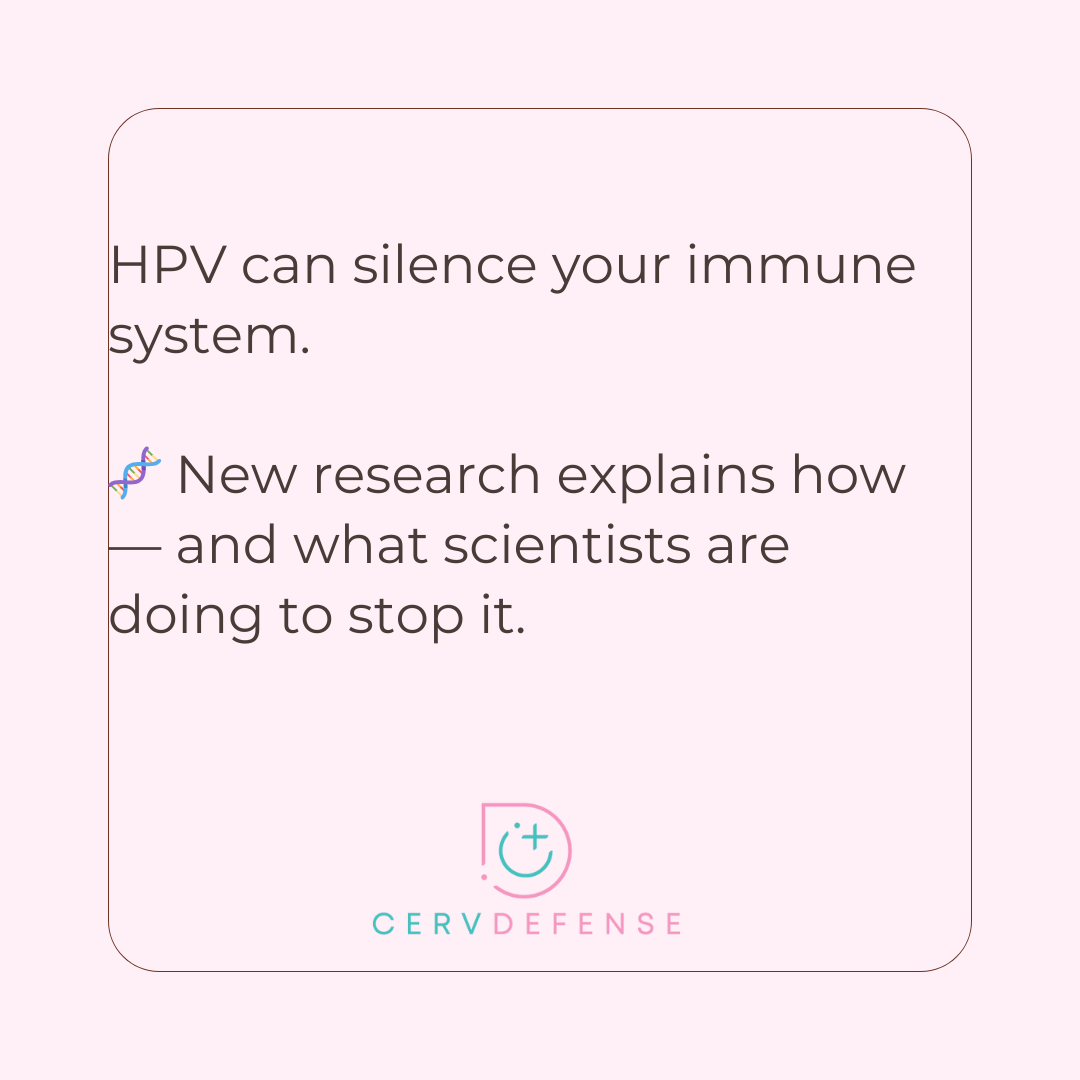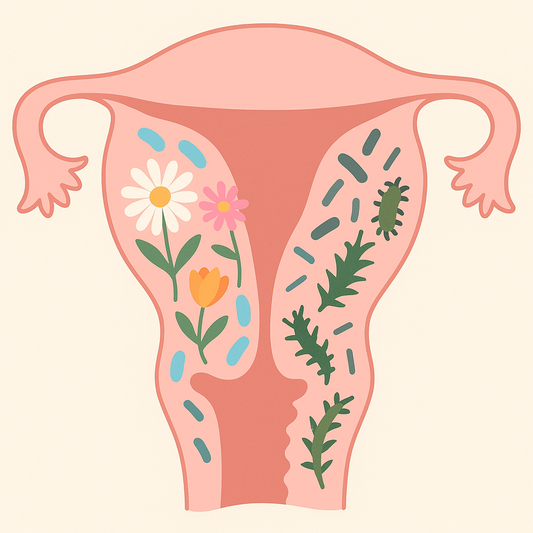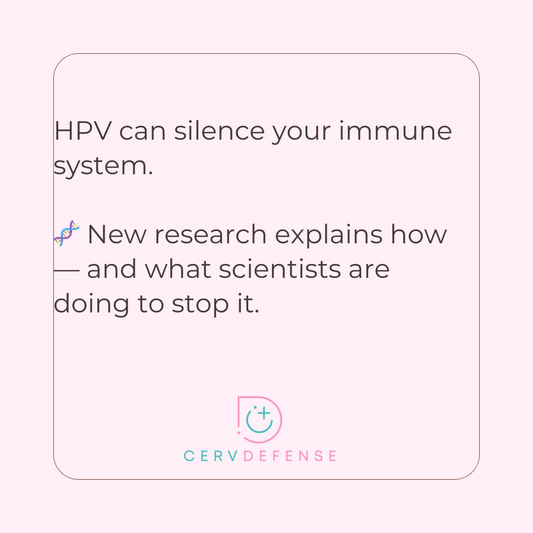
🧬 How HPV Reprograms the Immune System — and What That Means for Cervical Cancer Treatment
Share
What if your immune system wants to fight HPV — but the virus rewires your body not to?
A new study from researchers at the Keck School of Medicine at USC has uncovered a powerful insight into how HPV (the virus that causes nearly all cases of cervical cancer) evades the immune system and encourages cancer to grow. Even more promising? Scientists may have found a way to reverse it.
Let’s break it down in simple terms — and explain why this could lead to faster, more effective treatment options for people at risk of cervical cancer.
🧠 HPV’s Secret Weapon: IL-23
The research team discovered that two proteins made by HPV, called E6 and E7, can manipulate surrounding cells to release a molecule known as Interleukin‑23 (IL‑23). IL‑23 is part of your body’s immune response — but in this case, it’s not doing what it’s supposed to.
Instead of activating the immune system, IL‑23 in this context actually suppresses the function of T‑cells, the very immune cells that help detect and destroy cancer.
🧬 HPV is smart — it teaches your body to ignore the threat.
This creates a sort of “cloak of invisibility” for abnormal or precancerous cells, making it easier for them to grow unchecked. Over time, this immune suppression gives cancer a head start.
⚠️ Why This Discovery Matters
Your immune system plays a central role in clearing HPV from the body. In most people, HPV infections resolve on their own — but when they don’t, they can lead to high-grade lesions or cervical cancer.
This study helps explain why some people don’t clear HPV effectively, even if they’re otherwise healthy.
It also reveals something CervDefense has always believed: supporting your immune system is one of the most powerful tools you have in protecting your cervical health.
💥 The Breakthrough: Blocking IL-23 Helps the Immune System Fight Back
In preclinical trials (think: lab-based animal models), scientists found that when they blocked IL-23, T-cells were once again able to recognize and destroy HPV-related tumors.
Even more exciting? There are already FDA-approved drugs that target IL‑23, currently used for conditions like psoriasis.
That means this research may speed up the timeline for developing new cervical cancer treatments — by using tools we already have.
💡 Blocking IL‑23 could supercharge existing therapeutic HPV vaccines — giving your body a better chance at fighting off HPV-related cancer cells.
🌿 What This Means for You
This research shows us — once again — that cervical health isn’t just about avoiding “bad cells.” It’s about building a body that’s ready to fight when needed. That means:
-
Supporting a resilient immune system (maybe with CervDefense!)
-
Nourishing the microbiome
-
Staying informed on the science
At CervDefense, we’re committed to helping you do just that — with supplements designed to support immune and cervical health, and a platform that keeps you informed.



